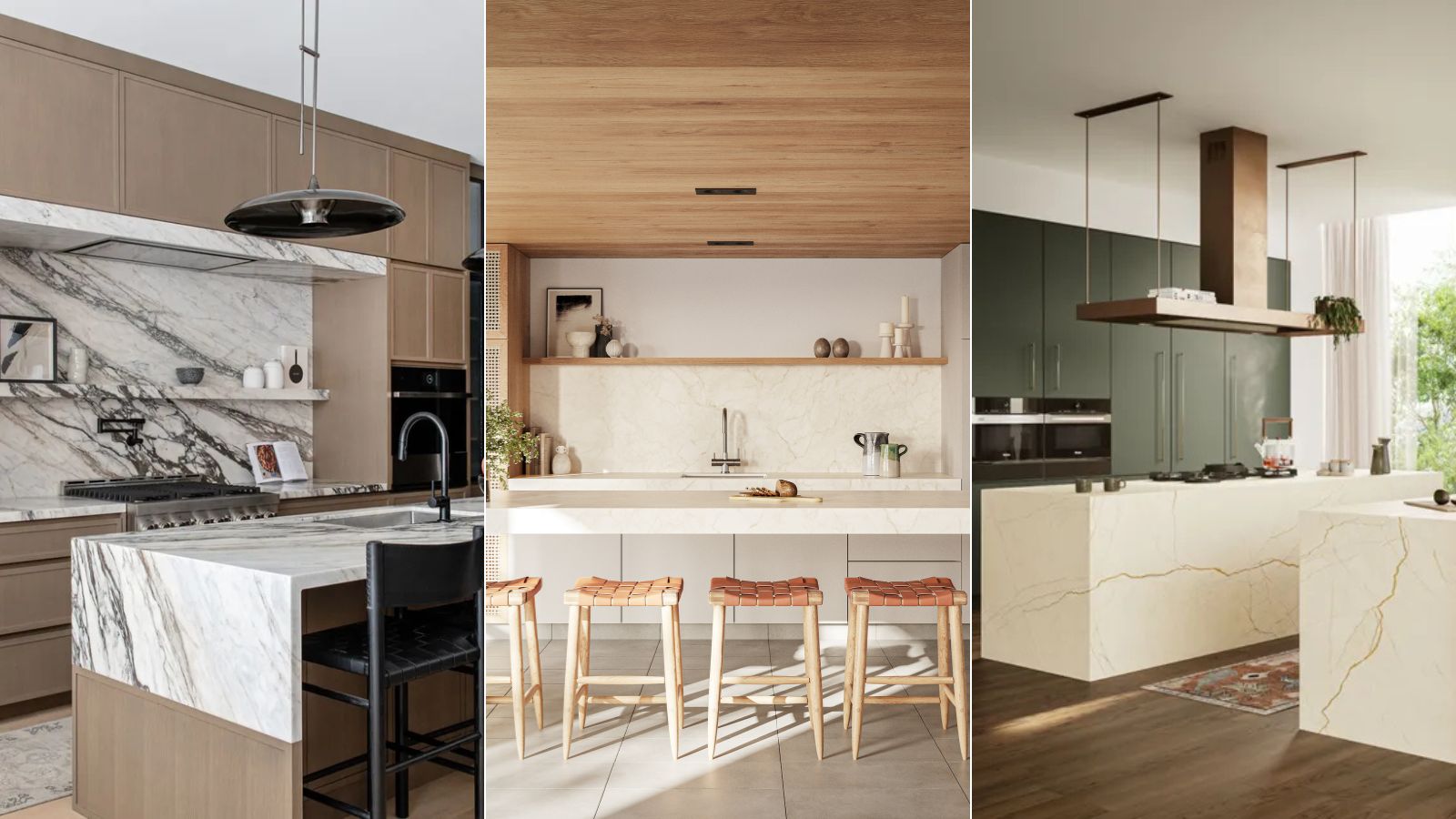
Countertops are a big part of your kitchen design. Functionally and visually, the countertops you choose greatly impact the overall finish of your space. Which is perhaps why porcelain countertops are becoming all the more favorable.
There are so many kitchen countertop ideas to choose between. Marble, granite, and quartz, just to name a few, are enduringly popular, but should you be considering porcelain for a balance of style and practical design?
We've asked that very question to interior designers to find out once and for all if porcelain countertops are the most practical choice – and if they really stand a chance against the classic go-to options.
Is porcelain the most practical material for countertops?
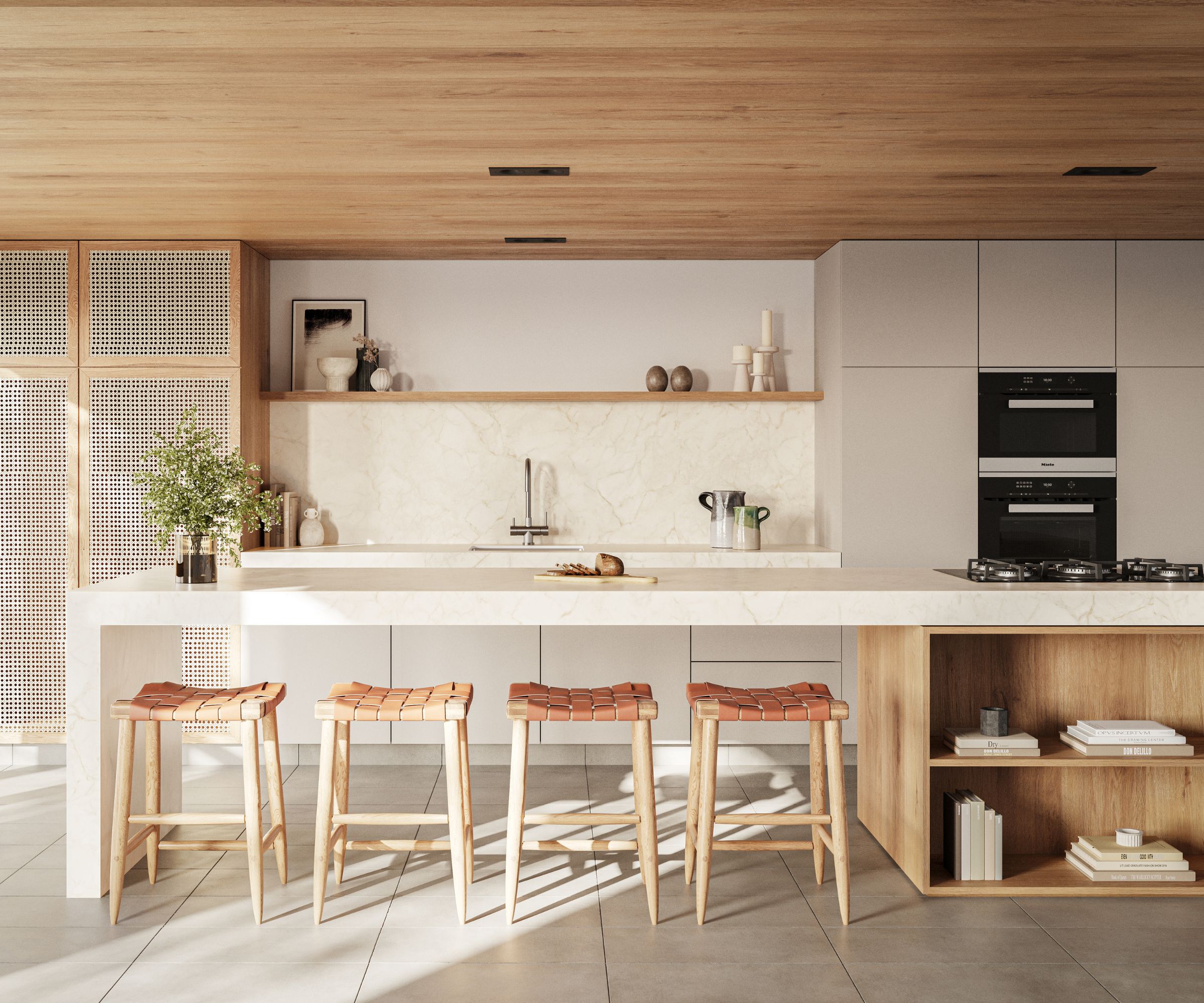
Created using a blend of clay and minerals, there are plenty of benefits to porcelain countertops. Not only do they look great, but they are one of the most durable materials – ideal for a high-traffic room.
'The material is resistant to stains and scratches, making it suitable for busy households. It is also non-porous, meaning that no moisture will be absorbed, preventing any bacterial growth,' explains Mor Krisher, head of design at Caesarstone.
Durability is the main feature that makes porcelain countertops so desirable. Whether you're designing for a busy family household or a kitchen for an avid chef, you can be sure porcelain will hold up in really lived-in homes.
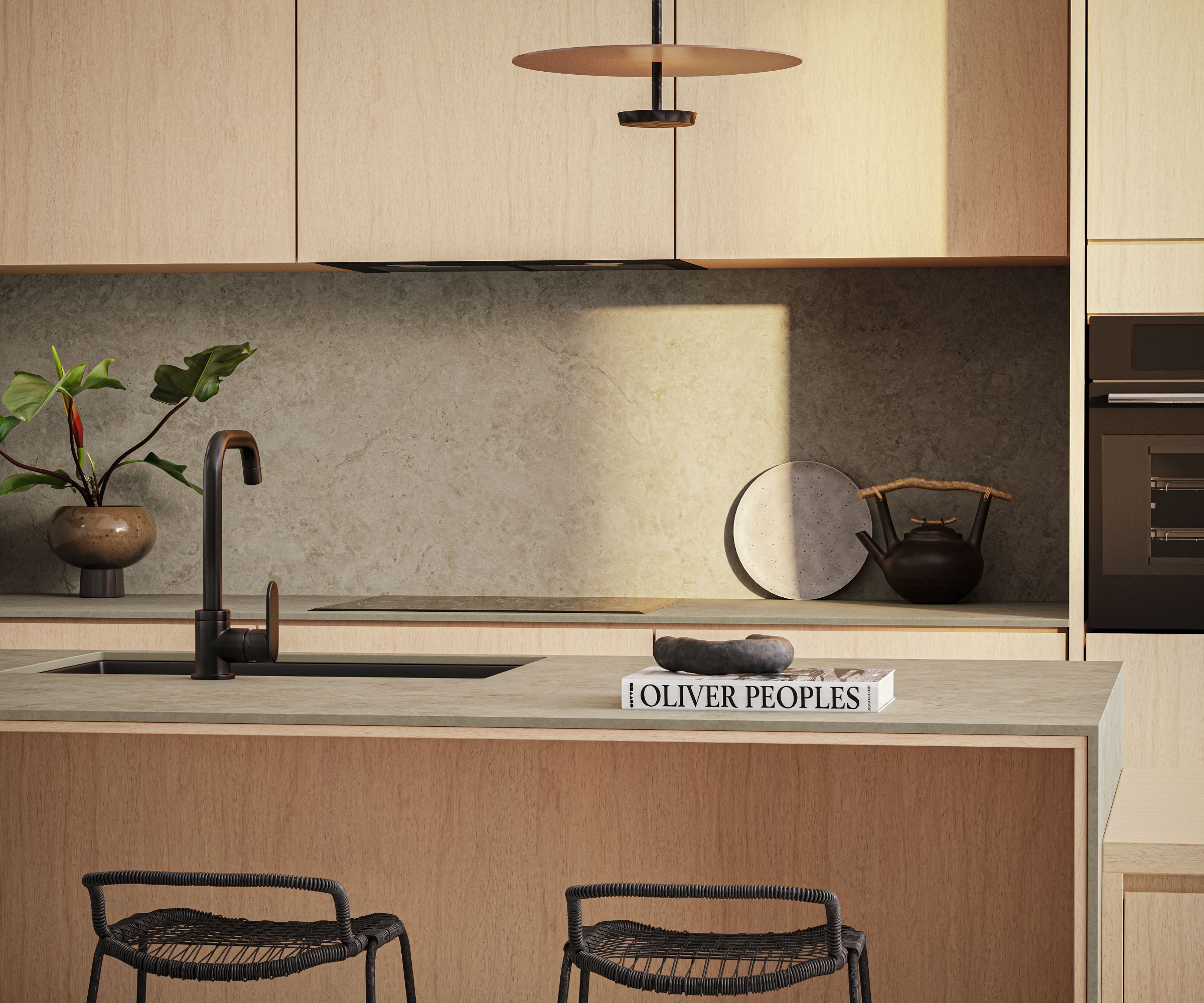
'In scenarios where durability and ease of maintenance are top priorities, porcelain can be one of the most practical options. Its surface is hygienic and requires minimal upkeep – perfect for spaces that endure daily wear and tear,' says interior designer Becky Shea.
There are, however, instances where porcelain might not be quite right for your space – especially if you're looking for something with a particular style or texture.
'It may not be the best option for every situation, particularly if you’re looking for a countertop with a more tactile, natural feel. The choice ultimately depends on your lifestyle and the design goals of the space,' adds Becky.
Are porcelain countertops a stylish choice?
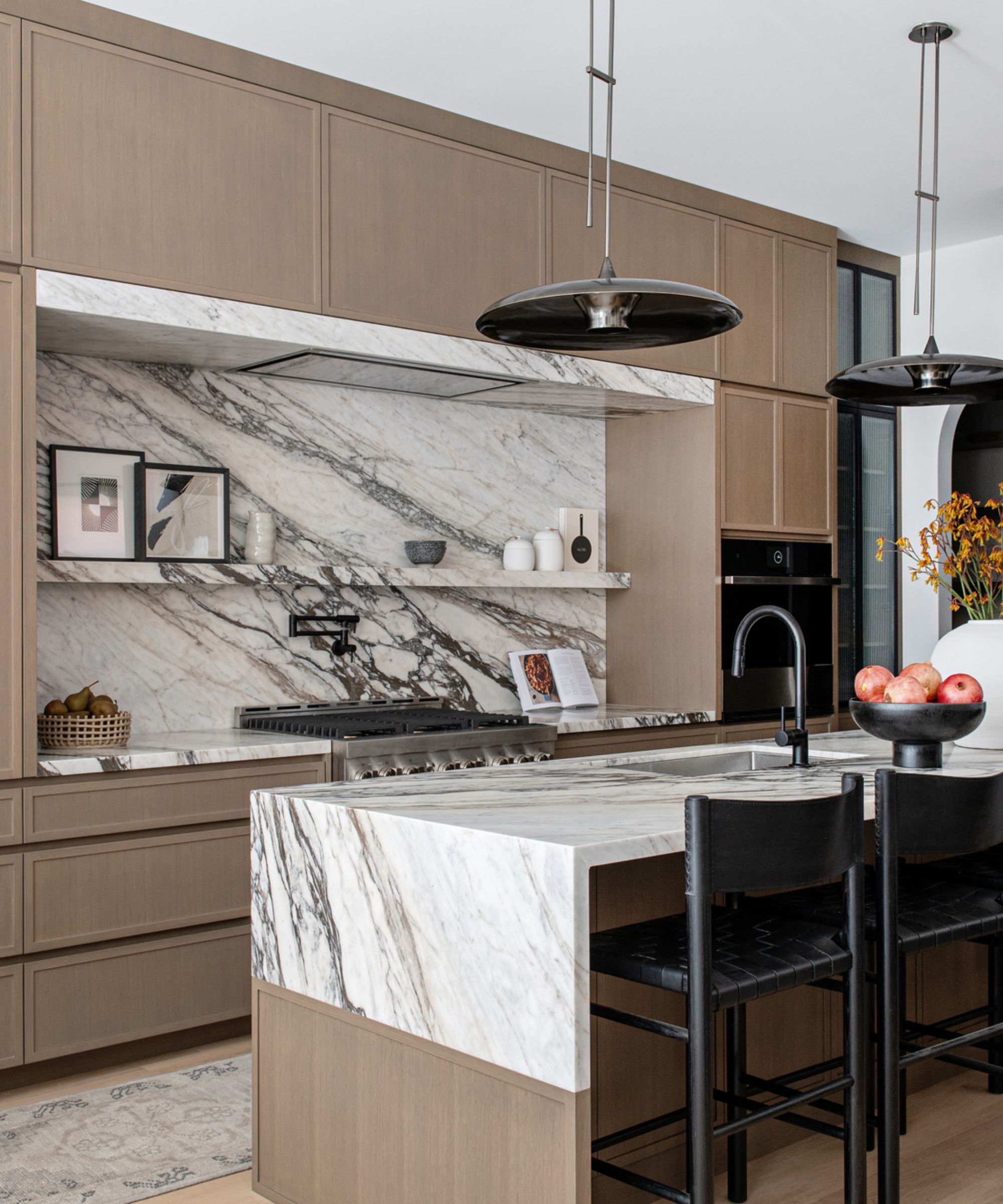
Unless a natural stone is non-negotiable for your design, porcelain countertops tick almost every box. As well as its undeniable durability, it's one of the most versatile materials in terms of aesthetic style, too.
'Porcelain countertops offer a sleek, modern aesthetic while being incredibly durable and versatile. They also come in a variety of finishes and designs, often mimicking the look of natural stone or concrete, which adds to their appeal without the maintenance concerns of some other materials,' explains Becky.
If you like the look of natural stones but don't want to deal with the upkeep, porcelain is a great alternative. Or, if you prefer a bold, striking countertop design, there's a porcelain option to satisfy.
'Porcelain offers incredible design versatility. Its manufacturing process allows for the creation of bold designs and dramatic colors that are often more challenging to achieve with other man-made materials. As heavily veined surfaces are having a moment right now, porcelain is an increasingly popular and appealing choice,' says Mor.
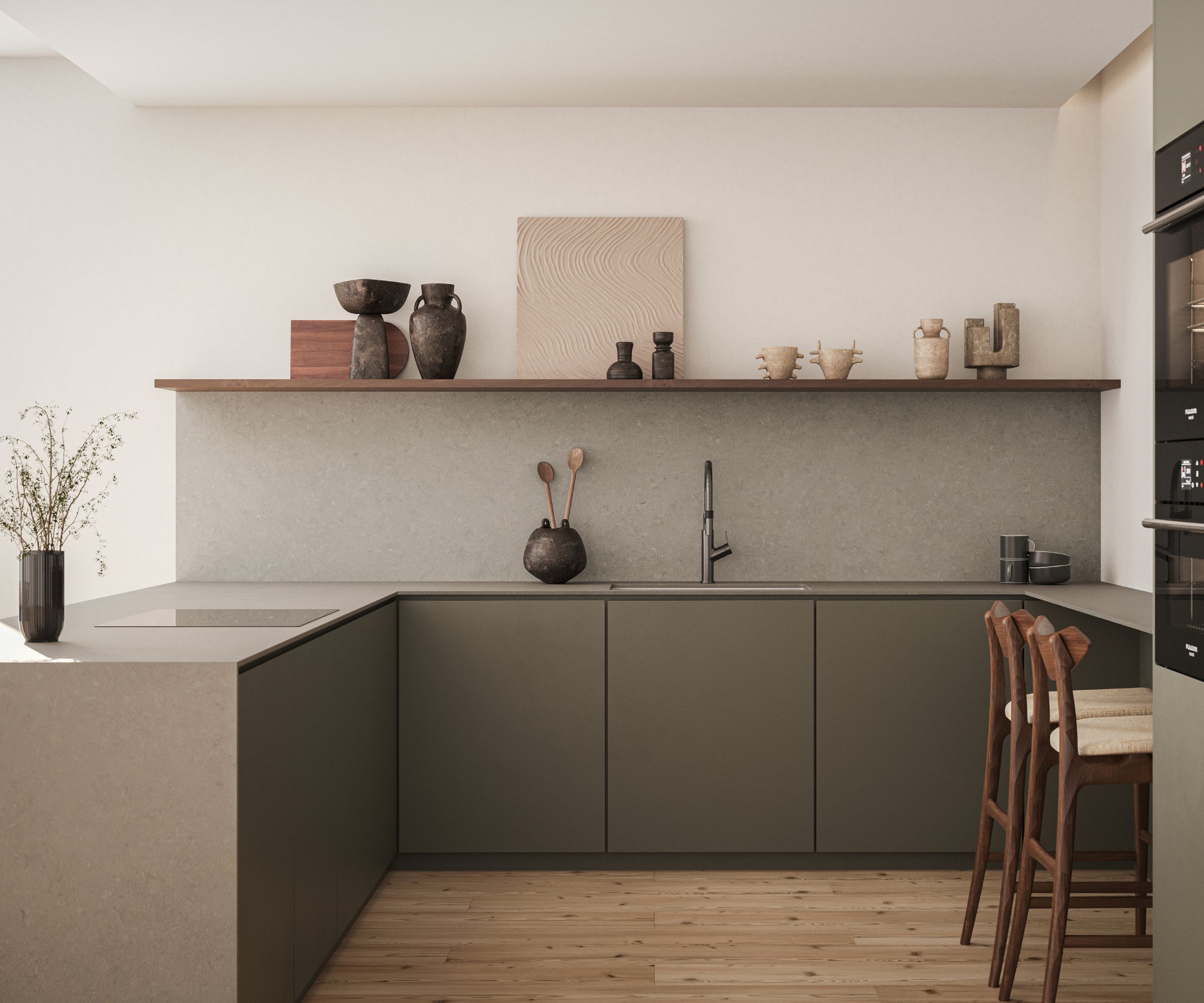
While porcelain countertops integrate seamlessly into almost any kitchen style, there are some material and finish combinations the interior designers gravitate towards for an elevated space.
'Porcelain works beautifully when paired with thoughtfully curated millwork, hardware, and complementary finishes,' says Becky, who suggests 'reviewing samples of cabinetry, flooring, paint colors, and even lighting to ensure the palette feels cohesive.'
'For a kitchen, warm wood tones, matte black or brass hardware, and a subtle yet textured backsplash can create a harmonious look. It’s all about layering finishes to achieve a balanced, inviting space that feels seamless.'
Things to consider before choosing porcelain countertops
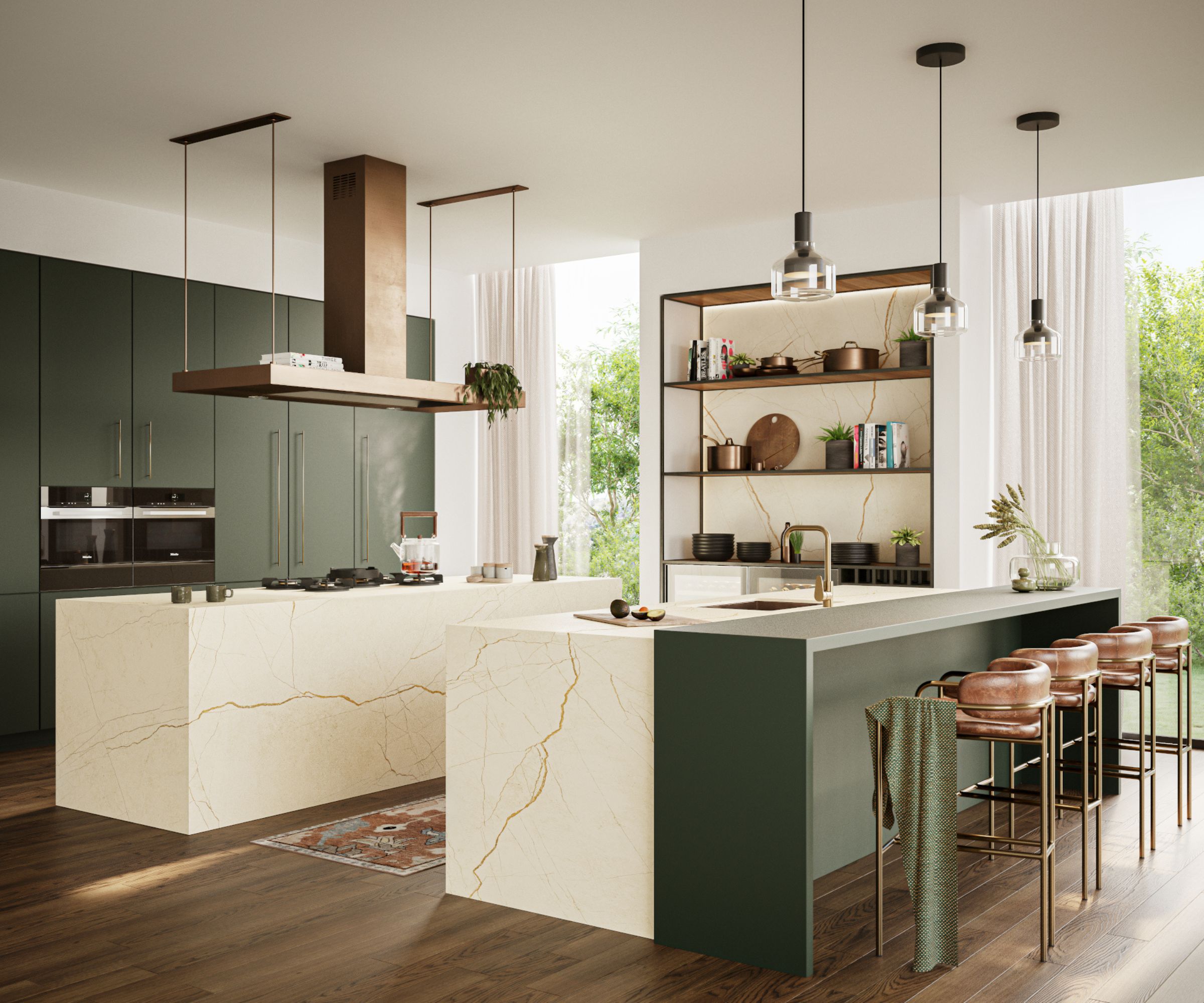
As with any countertop material, there are some things to consider when choosing whether or not porcelain countertops are right for you. While they are undoubtedly durable, they aren't completely immune from damage.
'Its edges can be prone to chipping if struck with heavy objects. It’s also a thinner material compared to some natural stones, so proper fabrication and installation are crucial to achieving a polished look,' says Becky.
Finish is another key consideration with porcelain countertops. While you may have debated between a matte and gloss finish from a style point of view, you'll also want to think about streaks, smudges, and superficial marks.
'Be mindful of the slab design and finish you choose – some high-gloss finishes can show fingerprints or smudges more easily, while matte options offer a softer, more forgiving surface,' warns Becky.
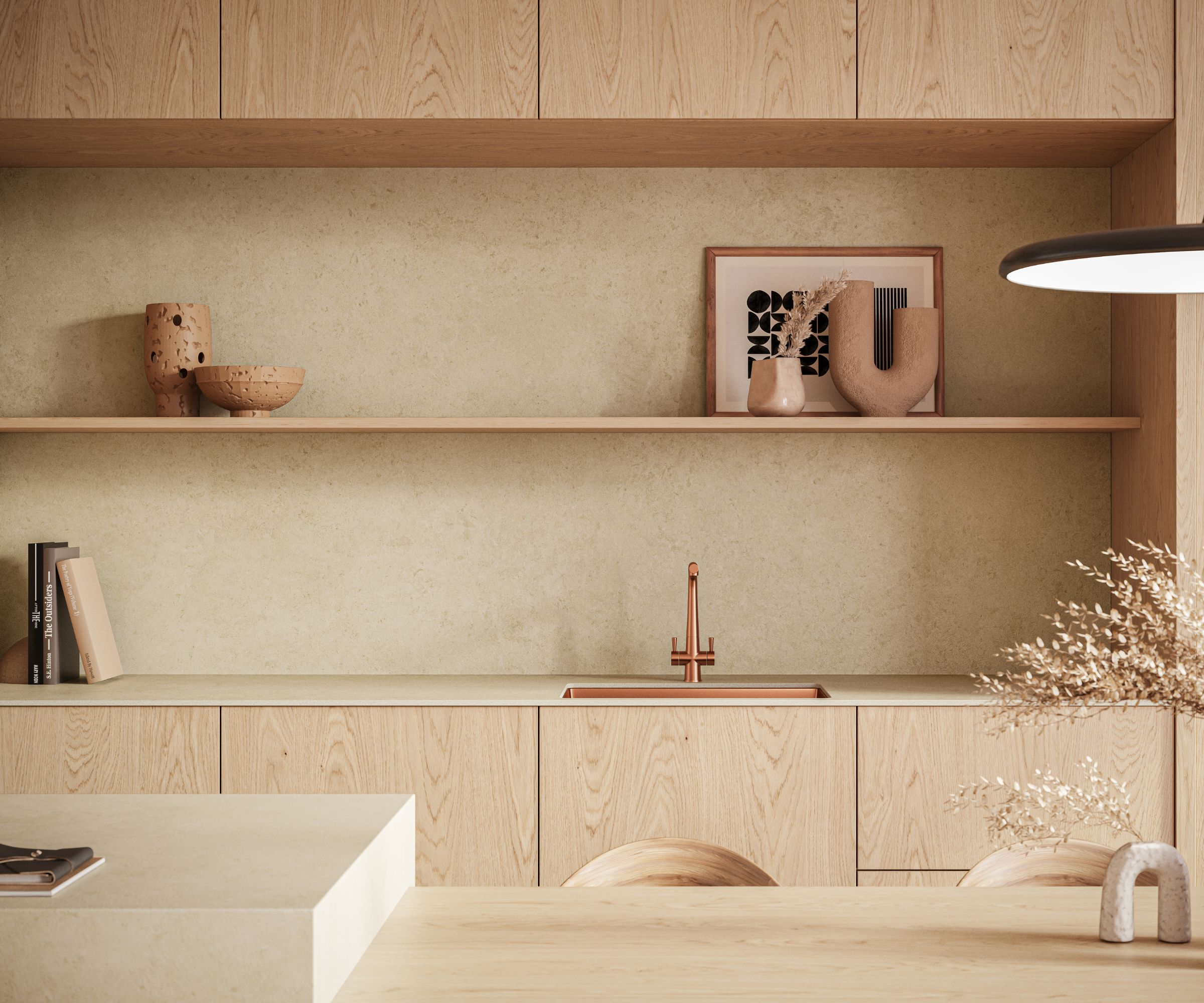
So, porcelain countertops get the designers' seal of approval. Hardwearing and aesthetically pleasing, it's one of the most versatile materials you can choose. But as with any countertop design, it's important to make the decision based on you personal needs.
'Porcelain countertops are an excellent choice for many projects, but they should be selected with your specific space and lifestyle in mind. That’s why I always emphasize reviewing samples in person and considering the interplay of all elements in your design,' Becky finishes.
Porcelain countertops are a great choice for a design that looks elevated but can withstand everyday wear and tear. Whether you like the look of a heavily veined marble or a minimalist stone, it's a more affordable way to achieve a luxurious look.







